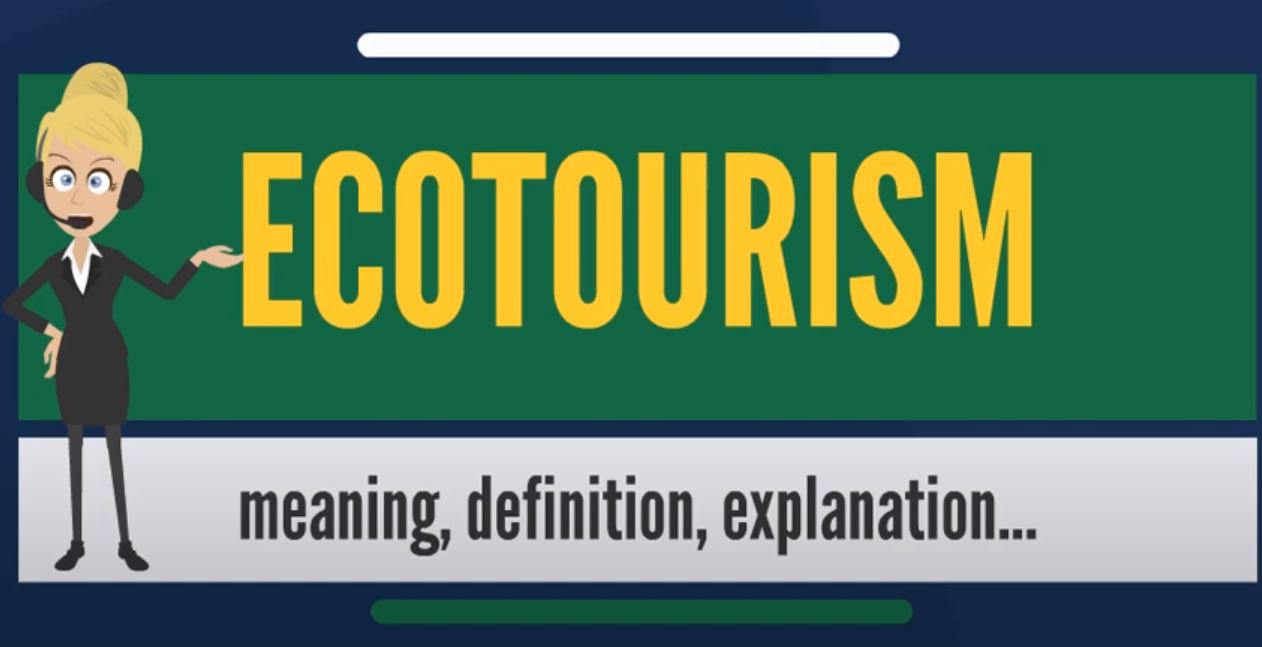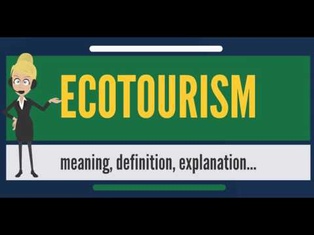Filters
What is ECOTOURISM? What does ECOTOURISM mean? ECOTOURISM meaning, definition & explanation
What is ECOTOURISM? What does ECOTOURISM mean? ECOTOURISM meaning - ECOTOURISM pronunciation - ECOTOURISM definition - ECOTOURISM explanation - How to pronounce ECOTOURISM?
Source: Wikipedia.org article, adapted under https://creativecommons.org/licenses/... license.
Ecotourism is a form of tourism involving visiting fragile, pristine, and relatively undisturbed natural areas, intended as a low-impact and often small scale alternative to standard commercial (mass) tourism. Its purpose may be to educate the traveler, to provide funds for ecological conservation, to directly benefit the economic development and political empowerment of local communities, or to foster respect for different cultures and for human rights. Since the 1980s ecotourism has been considered a critical endeavor by environmentalists, so that future generations may experience destinations relatively untouched by human intervention.:33 Several university programs use this description as the working definition of ecotourism.
Generally, ecotourism deals with living parts of the natural environments. Ecotourism focuses on socially responsible travel, personal growth, and environmental sustainability. Ecotourism typically involves travel to destinations where flora, fauna, and cultural heritage are the primary attractions. Ecotourism is intended to offer tourists insight into the impact of human beings on the environment, and to foster a greater appreciation of our natural habitats.
Responsible ecotourism programs include those that minimize the negative aspects of conventional tourism on the environment and enhance the cultural integrity of local people. Therefore, in addition to evaluating environmental and cultural factors, an integral part of ecotourism is the promotion of recycling, energy efficiency, water conservation, and creation of economic opportunities for local communities. For these reasons, ecotourism often appeals to advocates of environmental and social responsibility.
The term 'ecotourism', like 'sustainable tourism', is considered by many to be an oxymoron. Like most forms of tourism, ecotourism generally depends on air transportation, which contributes to global climate change. Additionally, "the overall effect of sustainable tourism is negative, where, like ecotourism, philanthropic aspirations mask hard-nosed immediate self-interest." Ecotourist is different from a Tourist in the sense that, he or she is mindful of his environment, in most cases contributing to the sustainability of such surroundings.

YouTube allows users to upload, view, rate, share, add to playlists, report, comment on videos, and subscribe to other users. It offers a wide variety of user-generated and corporate media videos. Available content includes video clips, TV show clips, music videos, short and documentary films, audio recordings, movie trailers, live streams, and other content such as video blogging, short original videos, and educational videos. Most content on YouTube is uploaded by individuals, but media corporations including CBS, the BBC, Vevo, and Hulu offer some of their material via YouTube as part of the YouTube partnership program. Unregistered users can only watch (but not upload) videos on the site, while registered users are also permitted to upload an unlimited number of videos and add comments to videos.




